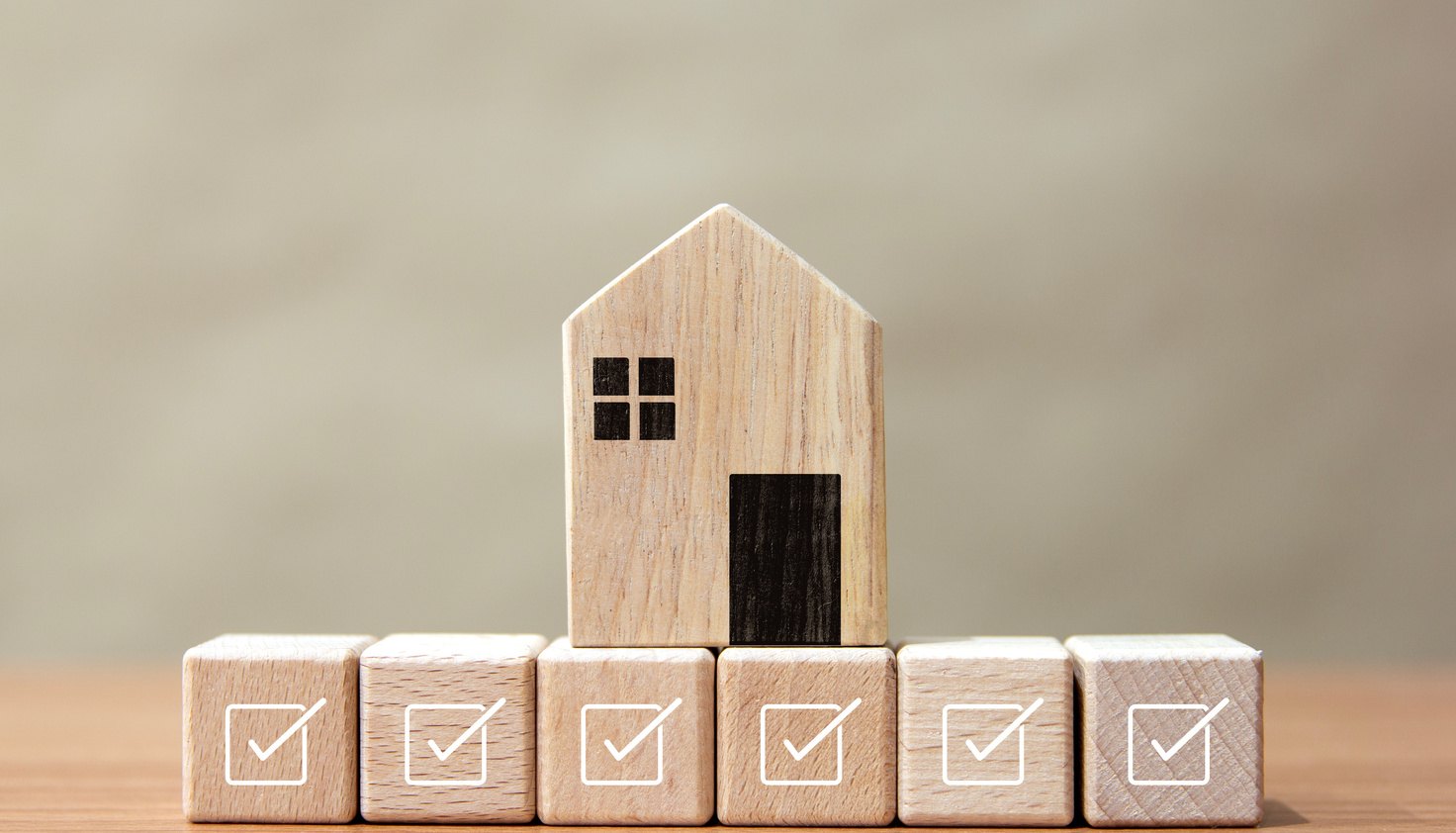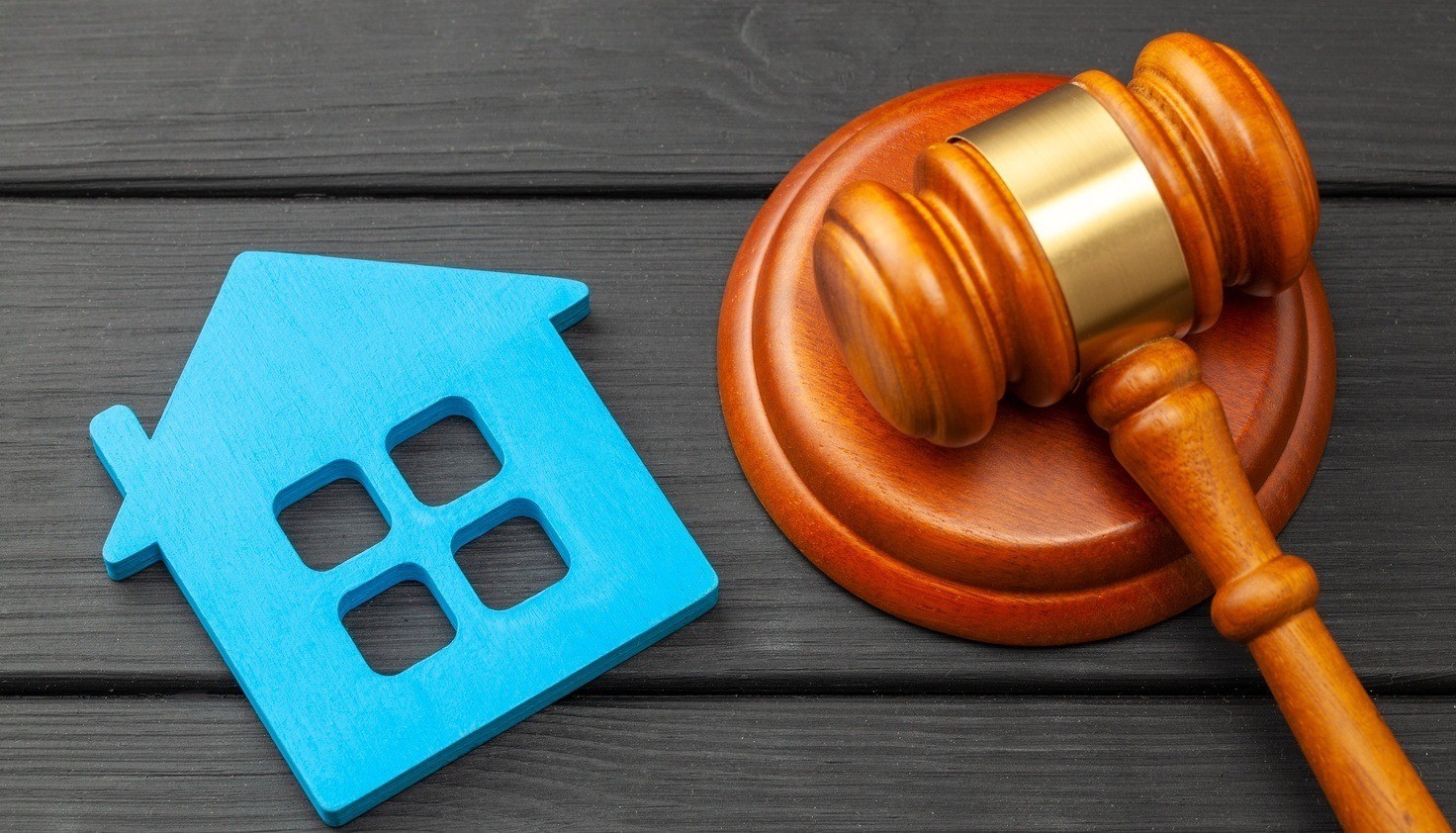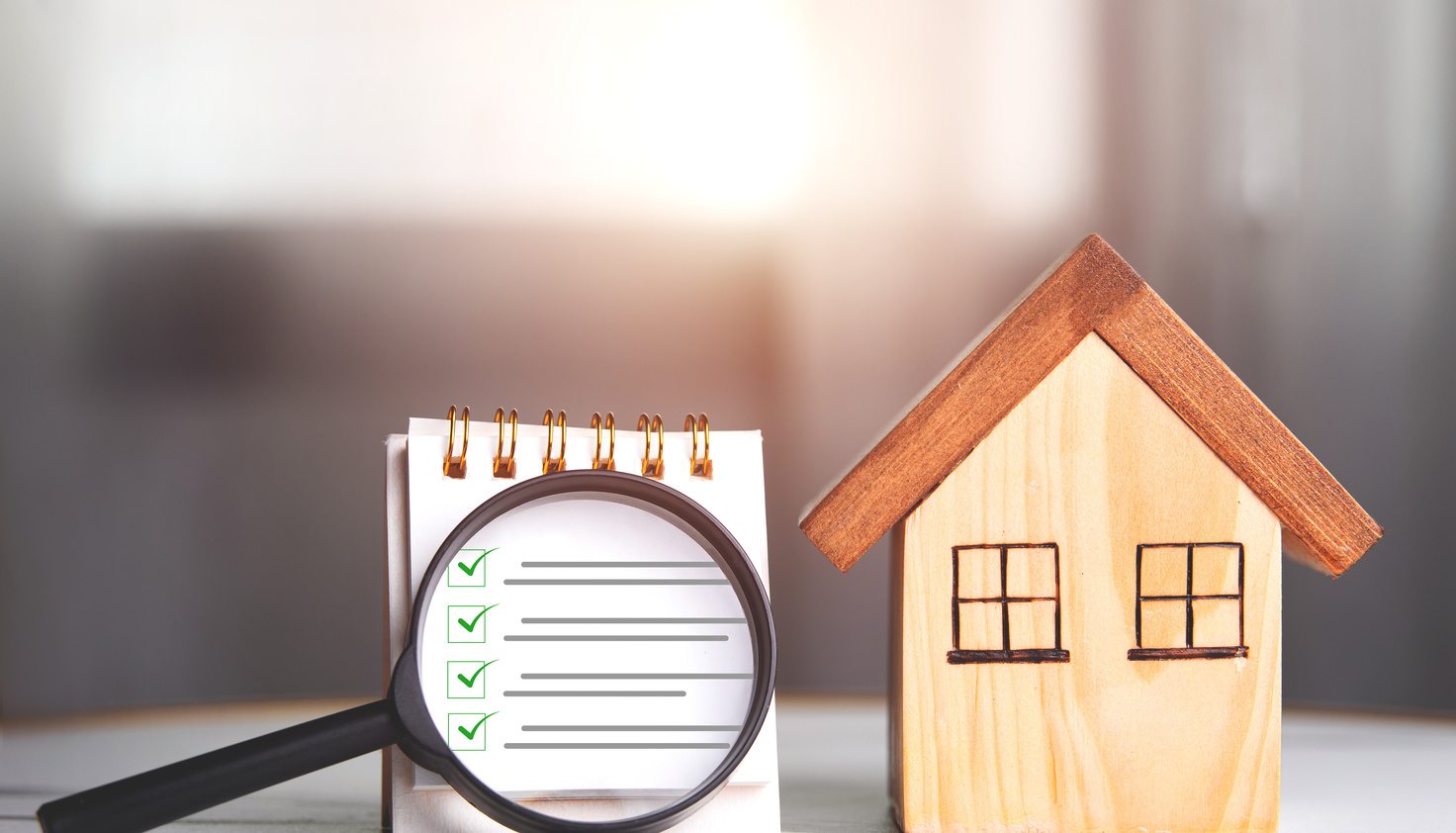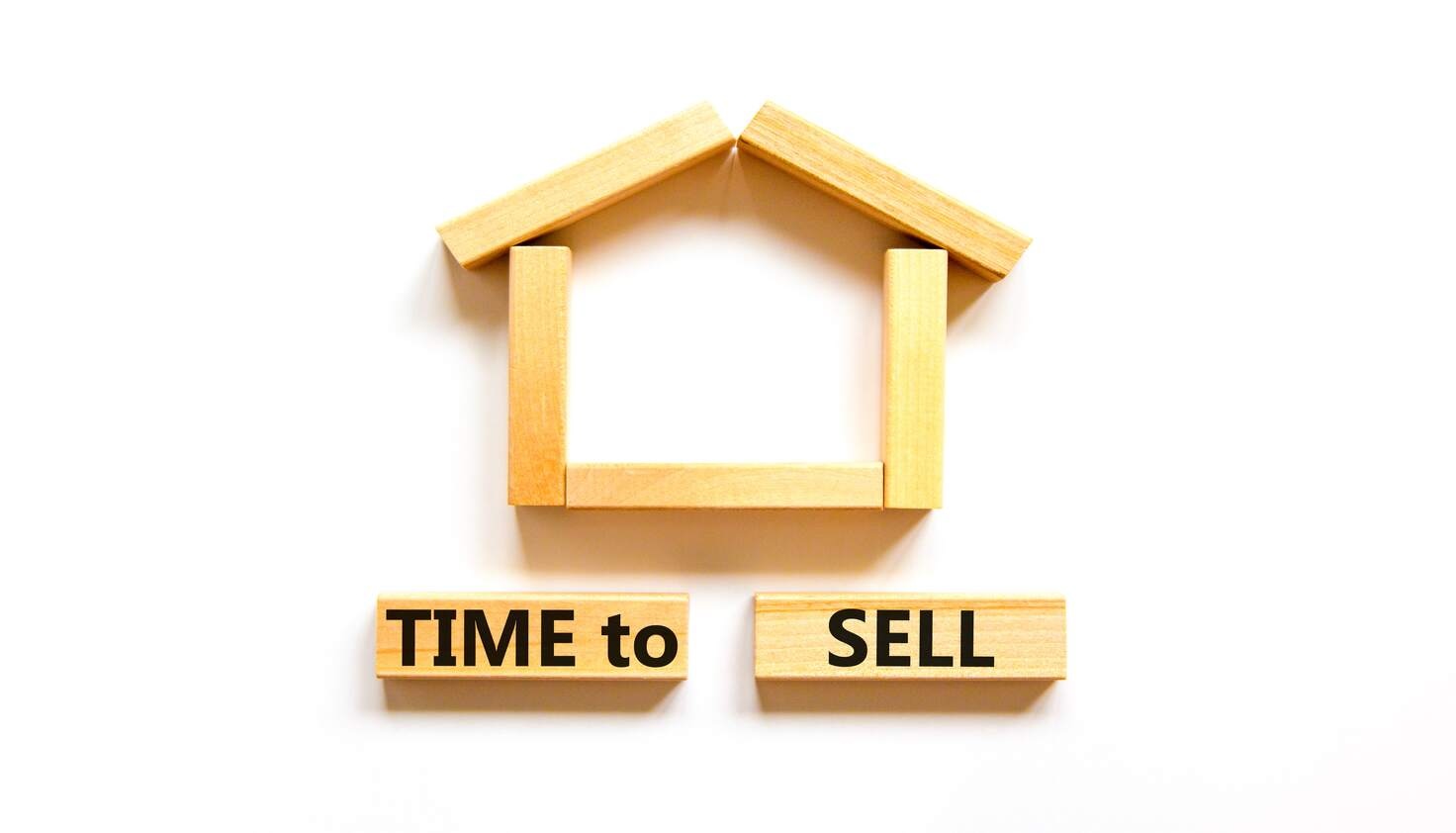Ready to sell your house but not sure where to start?
You’re probably looking for a roadmap to take you through the steps of a real estate transaction from a seller’s point of view.
A handbook that tells you all you need to know about how selling a house works.
So you can find a qualified buyer, collect your proceeds, and move on to life’s next chapter.
That’s what I want to help you with.
I’m going to break down the home selling process into bite-size steps.
The goal?
To remove the fog of real estate confusion so you know what to expect and when.
And so you know how to tackle each step with the right approach.
Here is the home selling process step-by-step.
1. Estimate the home selling timeline
Gauging the duration of the selling process will help you plan ahead and set realistic expectations.
It can also help you pinpoint the best time to sell.
For example, maybe you’re wondering when you should plan your next move.
Or how long you’ll need to keep paying the expenses on your home.
Approximating the timeline of the home selling process will help you do this.
Here are some of the important time frames to consider when estimating how long it will take to sell your house:
Prepping your home:
- 90-120 days – Major upgrades (kitchen, bathroom)
- 30-60 days – Medium upgrades (flooring, painting, landscaping, etc.)
- 14 days – Minimal home prep
Pre-sale home inspection:
- 7 days – This is optional but can be a great investment (we’ll discuss why shortly).
Pre-listing marketing:
- 3-7 days – Staging and photos
- 3 days – Photos (no staging)
Time on the market:
- 10-30 days – A home that’s priced right in a competitive real estate market is the ideal situation for any home seller.
- 30-90 days – Listing in a slower market can extend the process of selling a home.
*These can vary based on supply and demand for homes in your local real estate market, the condition of your property, the size of your home, your home’s proximity to road noise, how your property is marketed, and the price at which you list your house.
Accepted offer to closing:
- 21-60 days – A strong buyer and a good lender can take 21-30 days, whereas a buyer who isn’t getting conventional financing (e.g. FHA loan) can take longer to close.
- 7-14 days – A cash offer can speed up the selling process.
Sum up the days that apply to your sale, and you’ll have a good idea of how long the home selling process will take.
2. Understanding selling costs
Knowing how much you’ll pay when selling your home can help you avoid any surprises when you’re knee-deep in the process.
Plus, it can help you budget for your next move.
Here are the costs of selling a house that you’ll want to be aware of…
Costs to prep your home
The amount a seller pays to prepare their home depends on the property’s condition and what they ultimately choose to do with it.
You could save on some of these by taking a DIY approach.
Junk removal: $100-$800+
Deep cleaning: $200-$600 (depends on your area and square footage)
Pre-sale home inspection: ~$300-$700 (This can be a great investment when selling. I’ll tell you why shortly.)
Repairs and improvements: $800-$6,000+
Moving expenses
Moving out of your area will cost you more than if you’re buying in your local market.
But you’ll still encounter some expenses if you plan on moving close to your current home.
These can include hiring movers and/or storing your belongings in a shipping container or storage facility.
One of the biggest factors in the cost of moving is whether you box everything up or have the moving company do it.
Closing costs
Closing costs for a seller usually include things such as:
- Escrow and title fees
- County and city transfer taxes (varies by locality)
- The balance of property taxes up until the closing date
- Notary fees
- Attorney fees
- Real estate commissions.
These costs are deducted from your proceeds at closing.
Confirm this with your tax person, but generally, your closing costs can be a tax write-off.
Capital gains tax
A capital gains tax in real estate is an expense you pay on the increased value of your property (also known as a real estate cost basis).
The increased value is your final selling price minus the price you paid to buy your home (your closing costs can usually be subtracted from this number to reduce the taxable amount).
Many sellers are free from paying a capital gains tax because they’ll only have to pay it if they’re:
- Single and their increased value is above $250,000
- Married and their increased value is above $500,000.
Every selling scenario is unique, so it’s best to confirm with the person who does your taxes.
3. Deciding on your selling method: Agent vs. FSBO
One of the crucial steps to selling a house is to determine who is going to sell it.
Most homeowners hire someone to do it for them.
But you don’t have to.
The smart approach is to determine if you need an agent before making a decision.
Consider hiring a real estate professional if you’re:
- A first-time home seller
- Too busy for marketing, showings, open houses, etc.
- Not familiar with the purchase agreement and seller disclosures
- In a unique situation (e.g. selling a house during a divorce or selling inherited property).
Consider the “for sale by owner” (FSBO) route if you’re:
- Familiar with the home selling process
- Experienced in negotiating
- Not emotionally attached to your home
- Aware of potential legal mistakes.
Here’s something else to keep in mind…
The overall process of selling a house is similar for both options (i.e. what we’re covering in this article).
But there are differences.
Some of the steps when selling with an agent will be easier because you have the right person by your side and require less work.
Meanwhile, selling your home on your own is a DIY approach.
The primary benefit is that it can save you from paying a commission to an agent to sell your house –– but you’d still be paying a commission to the buyer’s agent.
4. Preparing your home for the market
Preparing a home for sale can be a time-consuming and an emotional part of the home selling process.
But removing your emotions from the equation with a clear plan gives you the best shot at selling for the best price (and in a shorter time frame).
So start thinking about this as a business transaction as you begin to get your house ready to sell.
Here are some things you should consider as you prepare your house for the market.
Declutter and maximize space
Decluttering is a task that will pay off when selling your home.
Why?
Because it makes it easier for prospective buyers to visualize themselves living in your house.
And it also makes the interior space of your home appear bigger than it really is.
You can streamline this part of the selling process by gathering garbage bags and boxes.
Then, go room by room and make these four separate piles:
- Trash
- Sell
- Keep
- Donate.
Get a pre-sale home inspection and make repairs
Getting a home inspection before selling isn’t required, but it can be a major benefit.
Here’s why:
- It boosts buyers’ confidence when submitting an offer.
- It reduces the chances of repair requests once an offer is accepted.
A home inspection usually include things like:
- Foundation and structural elements
- Basement
- Attic
- Electrical
- Plumbing
- HVAC
Review the inspection report and get guidance about whether there’s any maintenance worth performing.
Or if you should skip doing repairs altogether.
Tackle any repairs worth doing and make a list of the ones you completed.
You can attach this list to the inspection report so interested buyers know which items you’ve taken care of.
Prioritize money-making improvements
Four upgrades typically increase a home’s value and bring the highest return when selling:
- Flooring
- Stainless steel appliances
- Front yard landscaping
- Interior paint
But not all improvements pay off — so don’t go crazy over-improving.
The key to streamlining this stage of the process is understanding what not to fix when selling a house.
Only consider an upgrade if the added value to your home’s equity outweighs the cost.
Deep clean
Prospective buyers will notice things that you probably haven’t noticed in years.
So be sure to thoroughly clean before listing your home for sale.
And make sure to focus on scouring areas including:
- Walls
- Baseboards
- Floors
- Showers
- Sinks
- Toilets
- Grout.
5. Staging and photographing your property
What’s the first thing you notice when browsing homes online?
Photos?
You’re like the majority of buyers if that’s your answer.
That’s why a property’s photos are important when selling a home.
And staging can greatly enhance the positive impact buyers get when viewing photos online.
So consider utilizing both to help make the listing of your home stand out from the crowd.
Staging your home
Look at this photo:
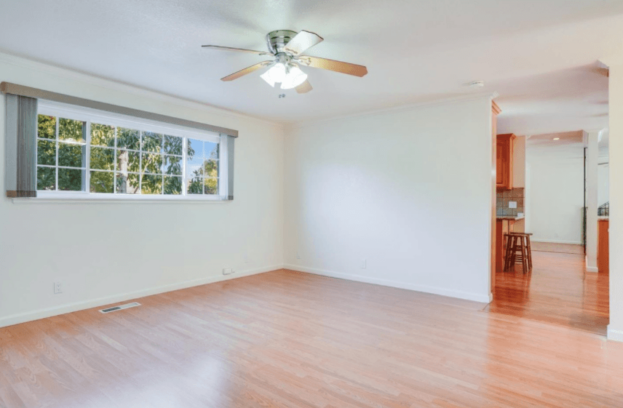
Now look at this one:
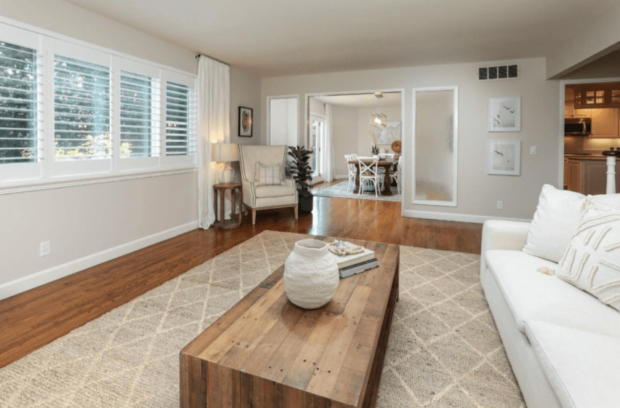
Big difference, right?
Don’t think twice about staging your home if it will be vacant when selling.
Online photos of a vacant home make a bad first impression.
And a bad first impression can prolong the selling process and negatively impact the final sale price.
You should also consider hiring a professional stager if you plan on living in your house while it’s on the market.
Many stagers will provide a free consultation and suggest which furniture should stay and which should go.
Utilizing professional photos
Professional photos that maximize your home’s appeal will interest more buyers.
So make sure a professional shoots the photos.
Here are a few things you’ll want to do before the photographer arrives at your home:
- Get your house sparkling clean.
- Turn on all the lights.
- Open all window coverings.
If you have any negative property features (e.g. high-voltage lines, a cramped stall shower, a shoddy backyard), have the photographer omit these.
6. Setting your listing price
Your home is worth what a buyer is willing to pay for it.
But how you price your home can attract more buyers AND maximize your selling price.
The listing price isn’t how much you can sell your house for.
If done right, your “asking price” can be the bait that lures more buyers to fetch you a higher number.
Keep these things in mind when deciding how to price your home for sale.
Look at recently sold properties: The best way to start gauging your home’s value is to look at similar properties that have recently sold in your area. The ones that carry the most weight are the ones closest in interior square footage and proximity.
Factor in key differences: Interested buyers will be comparing your home to the selling price of the most comparable sales in your local market. So you’ll want to do the same by factoring in key differences such as square feet, bedrooms, bathrooms, condition, etc.
Overpricing can backfire: Listing your home at an unrealistic price can be the sole reason why your home sits on the market. It’s best to base your decision on data, rather than a biased opinion.
7. Completing seller disclosures
Homeowners must disclose certain information about their property when selling.
These disclosure documents are meant to provide details about the property that a potential buyer might find problematic.
Here are some examples of things you’ll be required to disclose:
- Water damage
- Neighborhood noise
- Environmental contamination
- Potential risks from natural disasters
- Repairs.
The only exception to this is if you’re selling a house that you’ve never lived in (e.g. selling an inherited property).
In this scenario, sellers are exempt from having to disclose certain information.
This is important: Never intentionally hide anything from prospective buyers.
Doing so could result in a lawsuit.
It’s always better to over-disclose than under-disclose when selling a home.
8. Listing and showcasing your home
Selling a house is just like selling anything else.
The more people who see what’s for sale, the greater the chance the seller has of getting the best offer.
This is why using the right strategy to market and show your home is a key step in the home selling process.
Marketing a home for sale
There’s one goal when it comes to marketing a house for sale: Get buyers to visit.
The photos, price, and property description are the three things that can persuade buyers to view your home.
But they need to know that you’re selling your house before they can be persuaded.
Here are three ways to let them know:
Multiple listing service (MLS)
The “MLS” is a database used by agents across the country to list their homes for sale.
This is the number one marketing tool to sell a house because it reaches the most buyers and their agents.
But you don’t need an agent to use the MLS.
There are services you can pay that can do this for you.
Real estate websites and apps
Most buyers have search criteria set up on one of the big real estate websites/apps.
So you want to be sure that your listing is exposed on these platforms.
There’s a good chance it will be if your home is listed in your local MLS.
But some MLS’s don’t syndicate to these platforms, so you should confirm which real estate websites/apps will display your listing.
Social media
Having your property marketed on one or more of these platforms can increase your home’s exposure:
- TikTok
- LinkedIn.
And here’s the thing with social media…
Content can be easily shared.
So you’re not just getting exposure to the audience that you’re targeting; you’re making it easy for those people to tell others that you’re selling a home.
Showing your home to prospective buyers
Want to improve the chances of getting an offer quickly?
Then make sure your property is ready to show, and make it easy for buyers to visit.
Here are a few things to consider when it’s time to show your house:
Prep before showings and open houses: Clean, turn on all the lights, and open the window shades. The cleaner and brighter your home is, the better it will show.
Have shoe covers by your front door: Asking buyers to put shoe covers on can give them the impression that your home has been well-maintained, even if it hasn’t been.
Some buyers will want private showings: Sometimes buyers can’t attend an open house, or they want to view a home before others do. Allowing private showings can speed up your home sale.
9. Evaluating buyer offers
Receiving an offer is the stage of the process that most home sellers look forward to.
But a buyer’s offer doesn’t mean much unless it’s properly evaluated.
The key is to pay attention to the items in the purchase contract that can impact the sale of your home.
Because they’ll guide you toward responding to the offer in one of three ways:
- Accept
- Decline
- Counteroffer.
Here are a few of the more important things that you should pay attention to when assessing an offer from a homebuyer:
Price: Is the price on the buyer’s pre-approval letter at least the price that they stated in the purchase agreement? If it’s not, you should ask for an updated pre-approval.
Down payment: The purchase agreement must state what percentage the buyer is putting down. And the buyer should be able to show “proof of funds” (most recent bank statements) for at least this amount, plus their closing costs.
Escrow deposit: How much is the buyer putting down as their initial deposit? The “standard” amount is 1-3% of the purchase price (differs by area) and is deposited with the escrow company 24-72 hours after their offer is officially accepted.
Contingencies: Is the buyer including one or more conditions that need to be met before the sale can close? If so, what are they? And how many days are they requesting before they need to be released?
Days to close: Every purchase contract will have an estimated closing date or number of days to close. Knowing this can help you estimate how much longer you’ll need to cover the property expenses.
10. Releasing buyer contingencies
Having the buyer release their contingencies is one of the most important steps to selling a house.
Why?
Because real estate contingencies allows the buyer to back out of the sale (during the contingency time frame) and get their deposit back.
This means the seller would need to put the home back on the market.
Here are the most common contingencies buyers include in an offer:
- Loan
- Appraisal
- Inspection
- Sale of another property.
Think of these as conditions in the purchase contract that need to be met before the home selling process can be completed.
Because that’s what they are.
There are two things about a contingency that buyers need to state in the purchase contract:
- The type of contingency
- How many days for the contingency period.
But these are terms that the seller can negotiate before officially accepting the offer.
Here’s what’s important from a seller’s perspective…
The buyer is obligated to release a contingency by the agreed-upon time in the agreement.
They do this by signing an addendum to the contract.
If they don’t?
Then the seller has two options:
- Cancel the contract and re-list
- Extend the contingency period.
But…
The buyer can still try to negotiate before releasing a contingency.
For example…
Let’s say a buyer has a 10-day inspection contingency.
They can ask the seller to make certain repairs listed on their inspection report.
Or they can ask the seller to reduce the sale price.
Although they don’t have to do either.
The important thing is to make sure the buyer releases their contingencies on time.
Because they don’t really have “skin in the game” until they do.
11. Finalizing the sale
The final step to selling a house consists of a few important tasks that need to be completed before the sale can become official.
For many sellers, the closing process happens about one to two weeks before the closing date.
Here are a few things you’ll want to be aware of to complete the home selling process.
Buyer’s final walkthrough
The buyer will conduct a final walkthrough of your property with their real estate agent several days before closing.
So you’ll want to make sure that your house is in the same condition as when the buyer first saw it.
Signing final documents
Typically, it takes two to five days from the time a seller signs their closing documents to when the home sale is official.
These are the two things you’ll need to bring with you when signing the necessary paperwork:
- Valid, government-issued photo ID
- Banking information, if you’ll have your proceeds wired.
Some states require an attorney during the closing process.
So you may have a real estate attorney by your side to look over the final documents.
Prep for closing
Here are a few things you’ll want to do before the property changes owners:
- Remove all personal property from your home
- Take utilities out of your name
- Cancel your homeowner’s insurance
- Update your mailing address.
Transfer property ownership
The sale of your home becomes official once the deed is recorded and ownership is transferred.
You can expect to receive your proceeds shortly after this.
You’ll have two options to collect your money from the escrow company:
- Cashier’s check
- Wire transfer.
That’s it.
At this point, you can officially say you’ve completed the steps to selling your home.
The bottom line: Understanding how selling a house works
Selling a house can feel like an overwhelming process.
But following these 11 steps can boost your chances of having the most successful sale.
The key is to start the procedure of selling your home with the right information so you know what you should be aware of.
You can learn more about how to do that by reading about the best tips for selling your home.
FAQs about the home selling process
There’s a lot to consider when selling a house. Here are some of the most common questions about the process from home sellers just like you.
What makes a house hard to sell?
Factors that make selling a home hard can vary. The most common ones are not setting a realistic price, a poor layout or floor plan, structural issues, lackluster curb appeal, a dated interior, and/or an undesirable location.
Can I sell my house without a realtor?
You can sell without a realtor, but keep in mind this comes with risks.
The home selling process can be both time-consuming and stressful, not to mention that it is one of the most important financial decisions you’ll ever make. Selling “for sale by owner” (FSBO) may save you a few bucks on paying a listing agent’s commission, but overall, selling without an agent can cost you money and time while increasing your stress level.
Can you sell a home with a mortgage?
Absolutely! Many homeowners end up selling a house with a mortgage balance. Look at your most recent mortgage statement to see how much you owe — just remember the final payoff will be higher due to accrued interest (along with any payoff fees or prepayment penalty).
Do you keep all the money when you sell your house?
You can estimate your home sale proceeds by deducting closing costs and your remaining mortgage balance from the sale price. Anything owed on your property — mortgage or line of credit balance, property taxes, sewer/trash bills, or liens — gets paid at closing. You can use our home selling calculator to estimate how much you might make.


